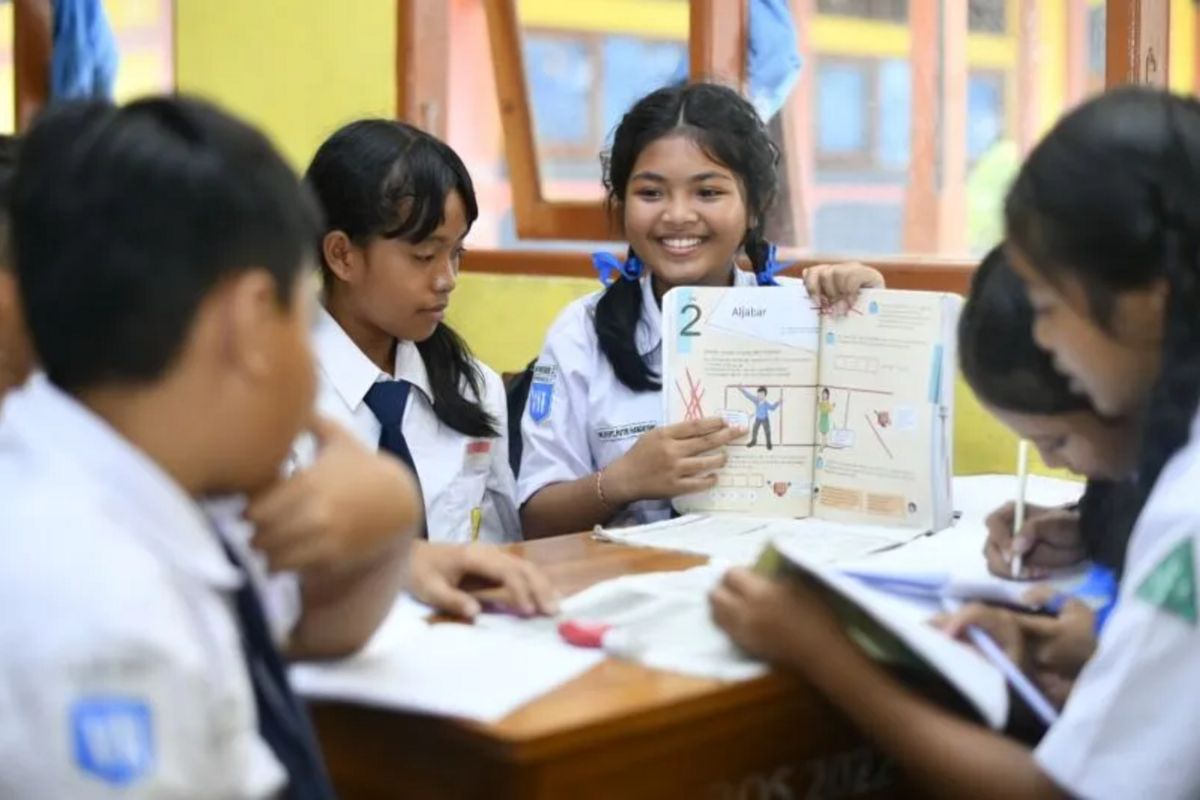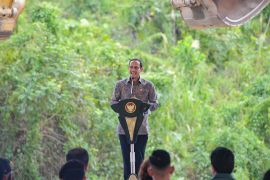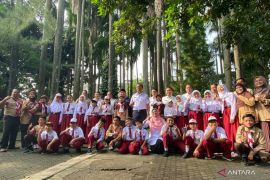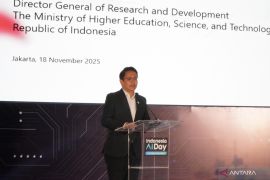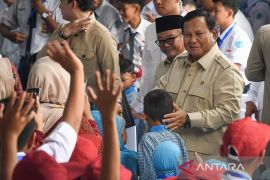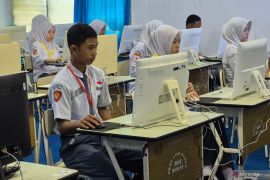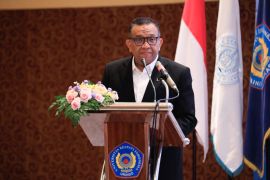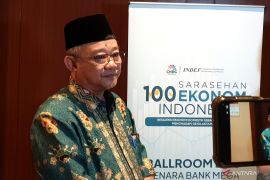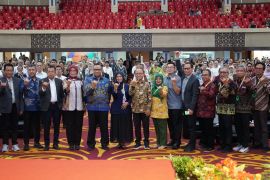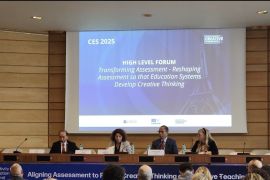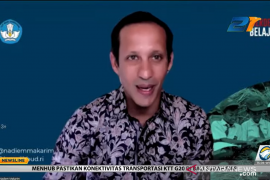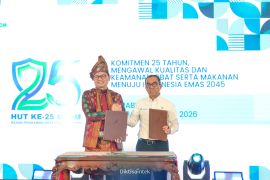Starting from 2024, through the Education, Culture, Research, and Technology Minister's Regulation Number 12 of 2024, the Independent Curriculum is established as a national curriculum.Jakarta (ANTARA) - In the past five years, the Ministry of Education, Culture, Research, and Technology has been striving to transform the education system to make it more inclusive.
Through the Independent Curriculum, Education, Culture, Research, and Technology Minister Nadiem Anwar Makarim is seeking to improve the education system in accordance with the needs of students that continue to develop.
This movement reorganizes the entire education system from its roots to produce quality human resources, including the school management system, teachers, students, parents, and the community.
The curriculum was launched to strengthen the role and collaboration of all stakeholders, including the community, in realizing quality learning for all children.
It also serves to respond to various challenges of time and current issues, such as character strengthening, climate change, financial literacy, digital literacy, health literacy, and the importance of literature.
The goals behind the Independent Curriculum are realizing meaningful and effective learning to increase faith in God, create generations with noble character, and nurture students to become lifelong learners.
Changing the education paradigm
The Independent Curriculum is a policy that changes the paradigm in realizing quality learning. It turns the challenges of developing education in Indonesia into opportunities.
The ministry turns challenges into opportunities by prioritizing three principles, namely character development, flexibility, and local content. These three principles are crucial to equip students to meet the needs of time.
The Independent Curriculum is designed with a character development principle that emphasizes students' spiritual, moral, social, and emotional competencies.
These steps are implemented by allocating special time or by integrating them with the learning process, such as the Project for Strengthening the Pancasila Student Profile (P5).
The flexible principle in the Independent Curriculum means that it can be adjusted to the competency development needs of students, characteristics of educational units, and the local socio-cultural context.
Essentially, it is focused on learning materials that are most needed for developing students' competencies and character, so that teachers can have time to provide deep and meaningful learning.
One of the forms of turning challenges into opportunities is the Independent Teaching Platform (PMM), as massive technological developments often become a challenge, including in the world of education.
Through PMM, the ministry is adopting digital technology to make it a teaching tool that includes digital books, examples of school curriculums, examples of modules, and class assessment instruments that are regularly updated.
PMM contains the principle of character development, as this platform supports the creation of a learning community, thereby connecting schools with sources of good practice from other schools, enabling them to influence one another.
Teachers do not have to make learning documents from scratch, as various examples of school curriculums, learning plans, modules, and assessments are available on the platform.
The other challenge in the world of education is the development of teachers' competencies that are not yet equal. In this case, the ministry created the Pioneer Teacher Program (PGP), Pioneer School (SP), and Vocational School Center of Excellence (PK).
Those programs employ teachers who are ready and competent to share their knowledge with other counterparts and schools. These competent teachers are trained first by the Ministry of Education, Culture, Research and Technology through the Pioneer Teacher Training.
The training program is a six-month leadership training program for teachers to become leaders in learning. In addition to sharing their knowledge, teachers are prepared to become school principals.
With nine batches, the PGP has, so far, covered 502 districts and cities in 38 provinces in Indonesia, including 1,792 teachers in special or disadvantaged regions.
The Independent Curriculum also enables the transformation of learning not only in urban areas and in schools with adequate facilities but also throughout Indonesia, including in disadvantaged regions.
To support the implementation in disadvantaged regions, the ministry launched the Pioneer Cloud system to facilitate teachers not having stable internet connection to access the learning tools and training modules in PMM offline.
Furthermore, more than 15 million copies of 716 reading book titles have been distributed to more than 5,900 early childhood education (PAUD) schools and more than 14,500 elementary schools in disadvantaged areas, accompanied by training to manage books and use them in learning.
Continuing the Independent Curriculum
Although schools have not yet been obligated to apply the Independent Curriculum in the last four years, it has been adopted by more than 300 thousand, or 80 percent of educational institutions in Indonesia.
Implementation of the curriculum has increased the numeracy score in educational institutions in regions, including underdeveloped, frontier, and outermost (3T) regions.
The numeracy score of schools in the 3T regions that implemented the Independent Curriculum for one year reached 8.15; the numeracy score with two years of implementation reached 8.79; while with three years of implementation, the score reached 12.49.
Meanwhile, the numeracy score for educational units in non-3T regions reached 13.14 for those implementing the Independent Curriculum for three years, 12.85 for those applying it for two years, and 10.4 for those implementing it for a year.
This reflects better achievements as compared to educational units that are still implementing the 2013 Curriculum, namely 8.99 for those in non-3T regions and 6.59 for those in 3T regions.
The results of the policy survey and evaluation of the Ministry of Education, Culture, Research, and Technology also showed that 97 percent of teachers gave positive support for the implementation of the Independent Curriculum.
The Independent Curriculum gives teachers the flexibility to design learning according to student and school conditions, one of which is through the P5 program that is able to encourage the students' character development.
The curriculum has encouraged students to be brave to dream, as they are more independent in class while also encouraging teachers to try new things, as they are given the trust to know and assess their students.
The positive impact of the Independent Curriculum makes it necessary to continue this policy. Moreover, its implementation has come a long way, especially because it involved a large system transformation.
Starting from 2024, through the Education, Culture, Research, and Technology Minister's Regulation Number 12 of 2024, the Independent Curriculum is established as a national curriculum.
Educational units that have not implemented the curriculum will be given several years to adapt.
In detail, educational units in non-3T regions are given a two-year transition period, or until 2026-2027 at the latest, to implement the Independent Curriculum.
Meanwhile, for 3T regions, they are given three years to transition, or until the 2027-2028 academic year, to implement the curriculum.
Related news: Catalyst teachers trained to be learning leaders: ministry
Related news: Merdeka Curriculum to build climate awareness: ministry
Translator: Astrid Faidlatul, Raka Adji
Editor: Arie Novarina
Copyright © ANTARA 2024
